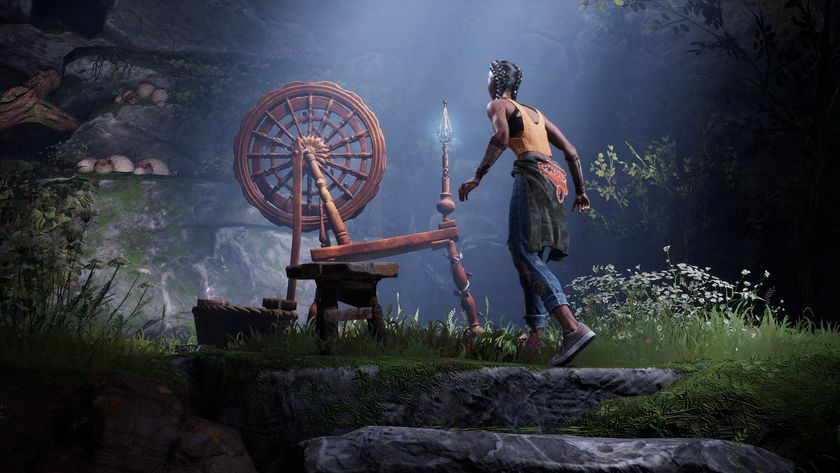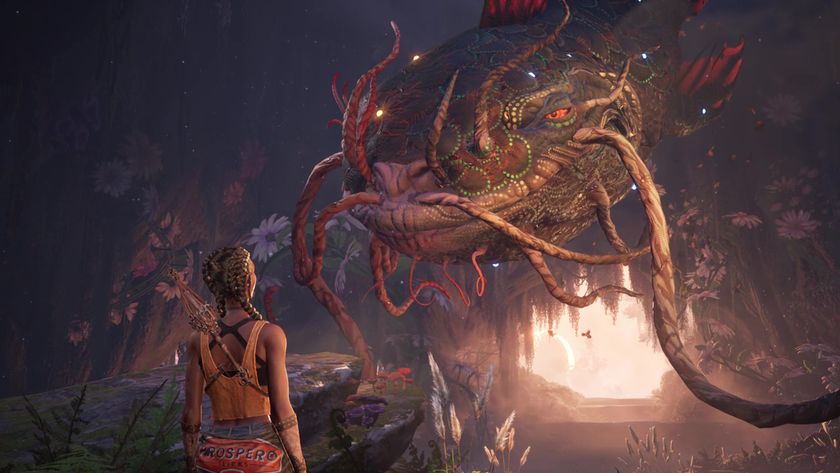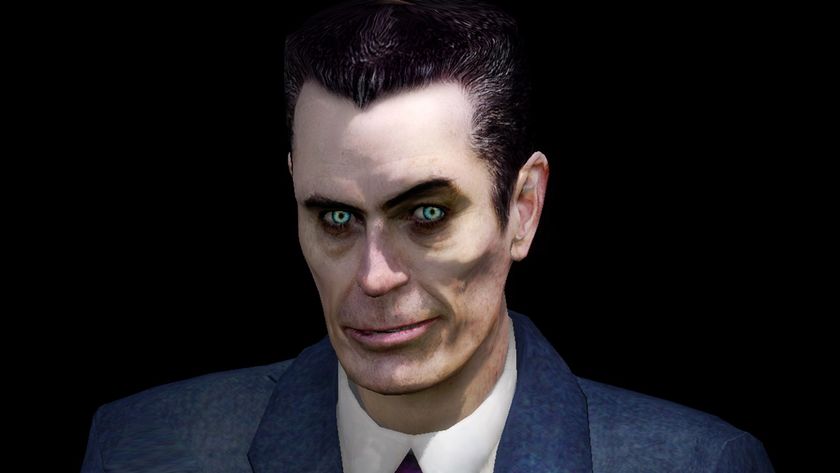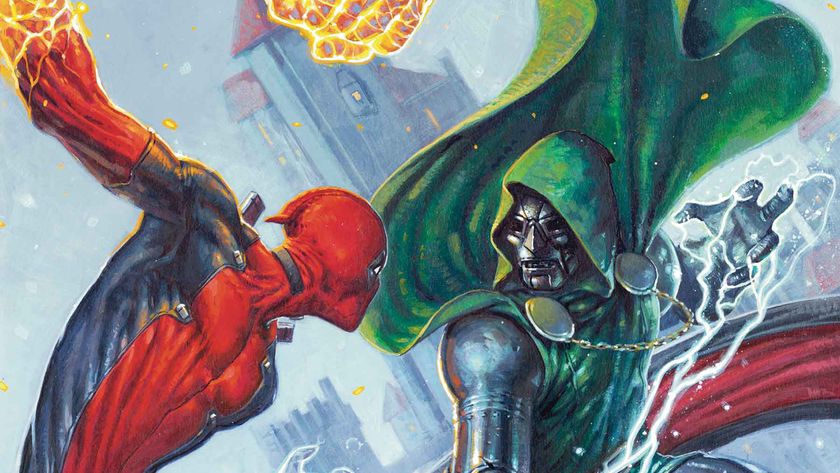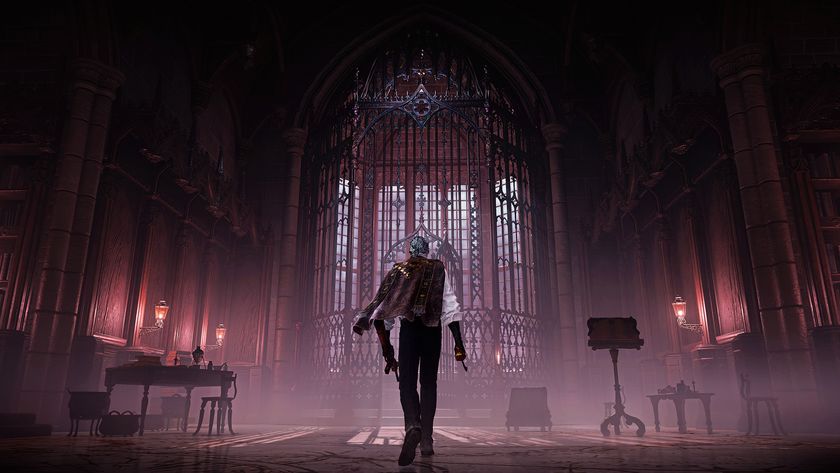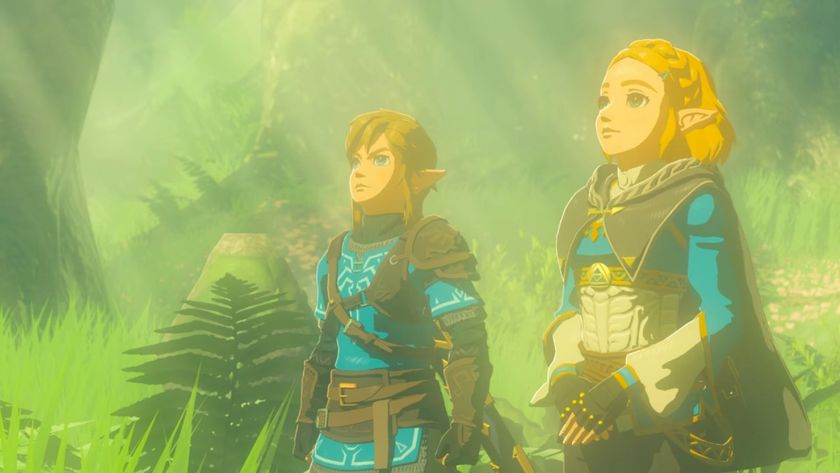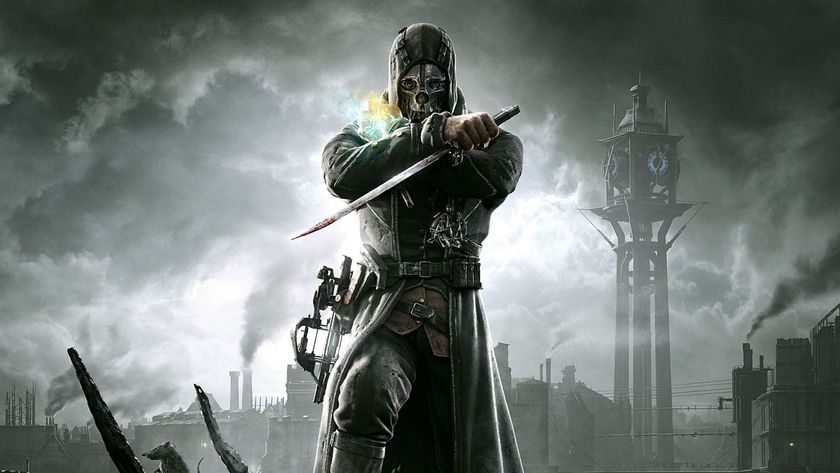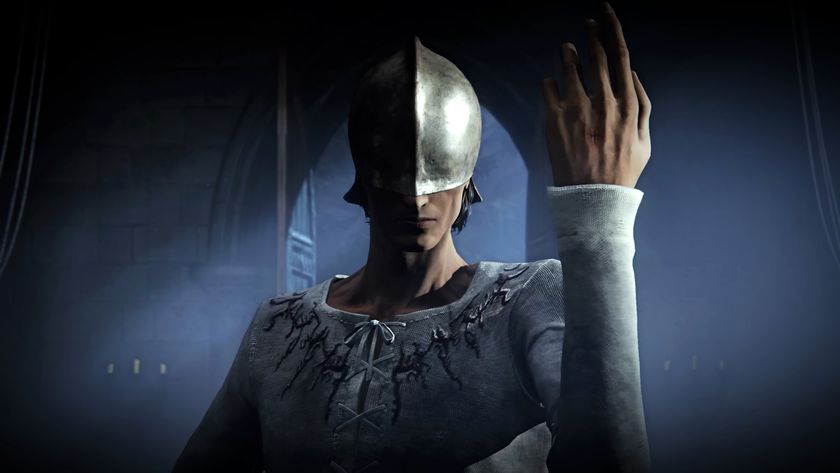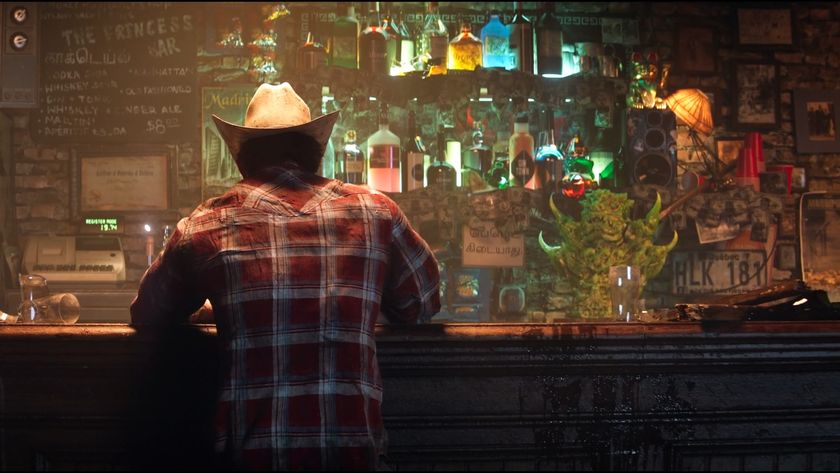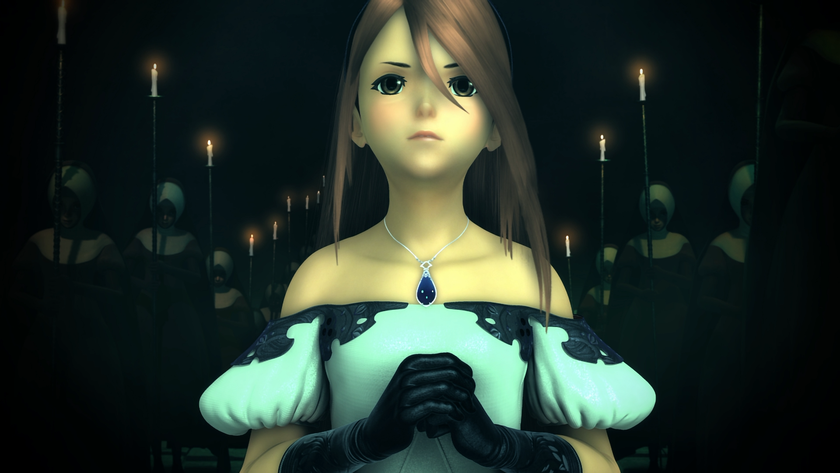The Wreck explores an impactful story about finding the right words, moving on, and processing trauma
Indie Spotlight: The Wreck is an interactive story that sees you explore memories and dig into thoughts
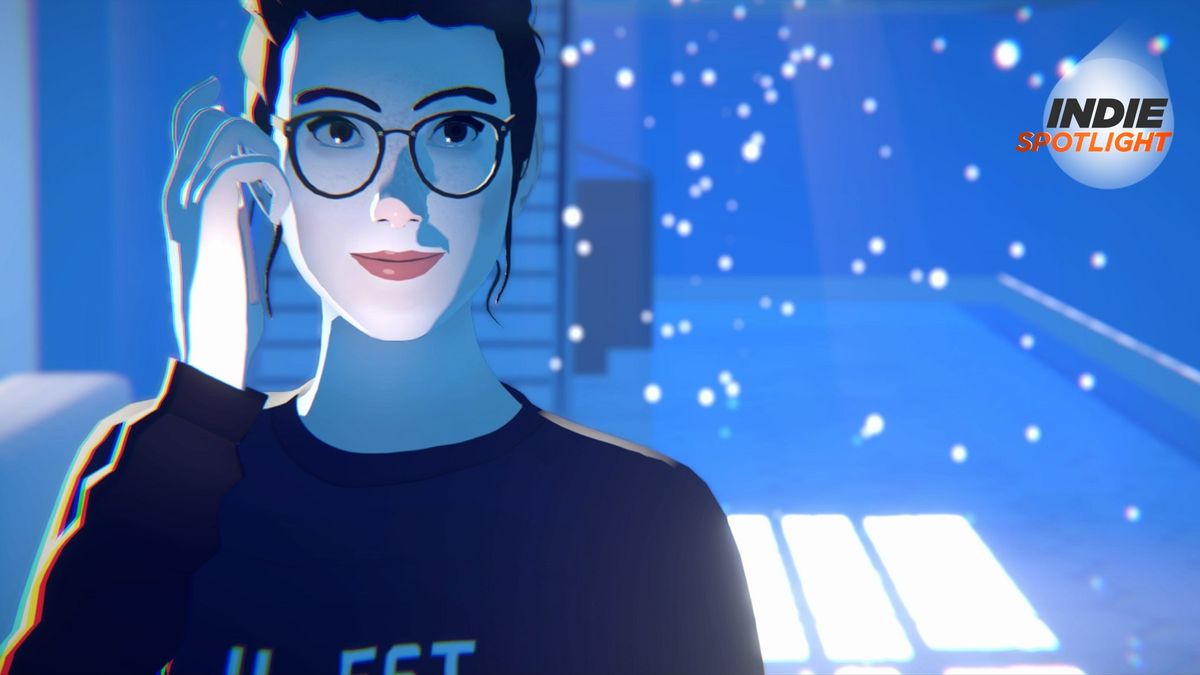
In The Wreck, protagonist Junon is having what can only be described as an incredibly tough day. Her estranged mother is in hospital, and, worse still, she's unknowingly been signed up as her mother's advocate to make decisions in her stead if something serious happens. This would be a lot for anyone to process, but I get to see first-hand how Junon tries to digest this news, which is being delivered by a resident nurse. With a window into Junon's thoughts, I can see and hear her inner monologue as she reacts from moment to moment. Certain interactive words pop up, made distinguishable thanks to their red color, and when I click on them, Junon elaborates on that train of thought. This allows me to dig deeper to learn more about her, but it can also open up the way for more dialogue responses to deal with the conversation with the nurse.
Now faced with a difficult decision she's far from ready to make, Junon decides there's nothing else for it. Everything is just too much. It's time to get back into her car and drive away from this situation. Suddenly, though, she loses control of the wheel to avoid a deer on the road, and swerves right into a stone wall. The impact sends the car spinning. Personal items in the vehicle are sent flying before me in slow motion. When a compact mirror comes into focus, the scene dissolves away and I'm drawn into a memory through the object. This might be the first time I'm experiencing this crash, but it certainly won't be the last… it's not long before I realize there's more to this 3D interactive visual novel than I first thought. Much more.
Unbroken
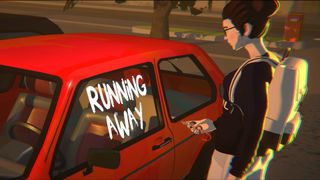
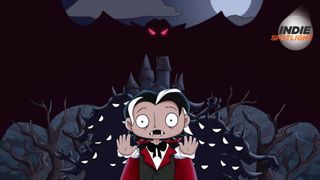
Voltaire: The Vegan Vampire is an adorable agricultural roguelike with teeth
I'm a big fan of visual novels to begin with, so the unique style, word-focused mechanics, and concept of The Wreck were an immediate draw for me. But as I got further in, I found myself getting more and more invested in the story thanks to the way it explores trauma, motherhood, and a host of other themes in a novel, non-linear way. It's important to note though before going any further that the journey Bury Me, My Love developer Pixel Hunt takes you on does deal with some tough subjects.
Content warning: self-harm, toxic relationships, grief, sickness
Before beginning, a content warning from the developer shows up detailing that Junon's story features themes such as self-harm, toxic relationships, grief, and sickness. Since it also depicts a car crash that can cause discomfort for those who are prone to motion sickness, it also highlights that there's an option in the settings that's there to try and reduce it. It's great to see this warning shown up front, particularly for a game revolving around a traumatic experience.
The Wreck's story stands out not only because of what it explores, but in the way it's told. Since Junon is a scriptwriter, the menu screen opens up on a desktop and by starting the game, you begin writing up a screenplay. Junon's thoughts then serve to narrate the story while also giving you deeper insight into her as a character. As we navigate through her thoughts, we're also trying to help her deal with the difficult conversations she's faced with in the hospital throughout the story.
At certain points, a keyword will materialize in the air that can be interacted with that allows Junon to keep the conversation or train of thought moving forward. Every now and then, the word evaporates to illustrate that Junon is struggling to address a certain topic or feeling she's having. When this happens, Junon will stop the conversation and run to her car where the very same crash that unfolded at the beginning happens all over again. It becomes clear that this crash is at the root of what's stopped her from moving forward, but it's only by revisiting this scene that you can find out why.
Sign up to the 12DOVE Newsletter
Weekly digests, tales from the communities you love, and more
Finding the words




Each time you reach a sticking point that causes Junon to essentially run away from her problems, you'll relive the crash, and be able to visit different memories through objects in the car. These snapshots into her life take shape within dioramas that I can travel through by fast-forwarding or rewinding. When I come across a particular scene within the memory, a phrase begins to materialize that I can interact with, which prompts Junon to express her thoughts as she reflects on this moment in time. By exploring her memories, I help Junon process her trauma bit by bit and better understand herself, which in turn helps her keep moving forward in the present. Once I've explored a set amount of memories, the key word she couldn't form before materializes, as though she can finally give shape to her feelings.
Just as we can all have a tendency to dwell over past events in our lives, Junon turns over moments in her life again and again. Sometimes this is reflected in the way that I'm led to revisit the same memory, only to find a new meaning within it that once again helps her move forward. Through all of Junon's conversations throughout the day, and all of her memories at pivotal moments in her life, I steadily gain a better understanding of her as a character, and start to unravel the mystery surrounding this crash and why it plays out repeatedly.
If you're a fan of narrative experiences that put storytelling front and center, The Wreck is worth a try. While it's worth being mindful of the themes it explores going into it, The Pixel Hunt's interactive visual novel took me on an emotional journey that kept me invested throughout and left a lasting impression.
The Wreck is out now on PC, PS4, PS5, Xbox One, Xbox Series X/S, and Nintendo Switch. Keep track of all of the exciting upcoming releases on the horizon with our roundup of upcoming indie games.

I started out writing for the games section of a student-run website as an undergrad, and continued to write about games in my free time during retail and temp jobs for a number of years. Eventually, I earned an MA in magazine journalism at Cardiff University, and soon after got my first official role in the industry as a content editor for Stuff magazine. After writing about all things tech and games-related, I then did a brief stint as a freelancer before I landed my role as a staff writer here at 12DOVE. Now I get to write features, previews, and reviews, and when I'm not doing that, you can usually find me lost in any one of the Dragon Age or Mass Effect games, tucking into another delightful indie, or drinking far too much tea for my own good.
